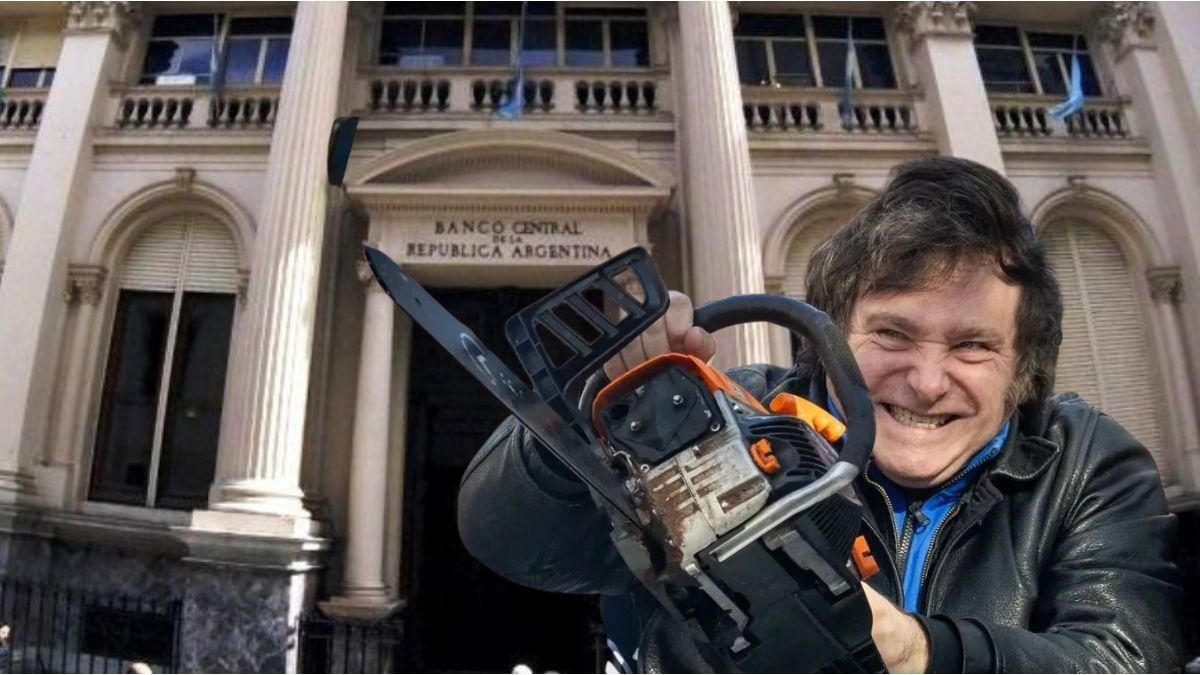The arrival of Javier Milei to the presidency of Argentina has been presented by its supporters as the beginning of a Unpublished experiment in the world: The application of an “libertarian” economic program, with the promise of dismantling the State and fully release market forces. From his electoral campaign, Milei proclaimed the intention of “Dynamit” the Central Bank, Dollarize the economy and reduce public spending to levels never seen in the history of the country. These proposals not only differ from Neoliberal policies traditional, but they represent, in the words of their critics, a Radicalized version of them (Grimson, 2023).
However, far from constituting a purely ideological experiment, the libertarian project is crossed by a structural dependence on international financial markets and local actors with particular interests. The paradox lies in the fact that, while the libertarian discourse exalts absolute freedom against the State, In practice, a state capture regime by financial and business elites is configured.
However, the literal application of this dogma faces serious contradictions:
These contradictions reveal that Libertarian dogmatism cannot be sustained without relying on a financial and political architecture that guarantees its viability. Over there The central role of actors such as Luis “Toto” Caputo appears and the link with Wall Street.
The role of Luis Caputo and the financial capture of the State
Luis Caputo’s designation as Minister of Economy symbolizes the direct connection between the Government of Milei and global financial power. With Previous experience as an official during the Mauricio Macri management and a past in Banking JP Morgan and Deutsche BankCaputo embodies the figure of the “Bridge” between Argentine politics and Wall Street.
Your role It consists of guarantee international creditors The continuity of external debt payments and offer new business opportunities through the opening of markets, the privatization of state companies and financial liberalization. This dynamic configures what critical literature calls “rotating door”: the permanent transit of individuals between public positions and functions in the private sector, which generates structural conflicts (Stiglitz, 2019).
The financial capture of the State is expressed in several dimensions:
- Indebtedness policy: Far from reducing debt dependence, the government resorts to new external financing mechanisms, postponing costs towards the future.
- Partial dollarization: By promoting transactions in dollars and deregulating the exchange market, the de facto dollarization of the economy is extended, for the benefit of sectors with currency savings capacity.
- Privatization and regulated businesses: The opening of strategic sectors (energy, infrastructure, telecommunications) generates investment opportunities for allied international funds of Caputo such as Blackrock, Templeton, Vanguard, etc., while weakens the regulatory capacity of the State.
In this scheme, public officials act simultaneously as regulators and as potential beneficiaries of the policies they design, which deepens the crisis of democratic legitimacy.
Economic policies and their social impacts
The first measures of the Milei government show the radicality of the experiment. Among them are:
- Elimination of subsidies to public services, with tariff increases that directly affect middle -class homes and popular sectors.
- Price liberalization, which caused a Initial inflationary over 25 % monthly.
- Reduction of social spending, with cuts in assistance, health and education programs.
- Labor flexibility and discursive attacks against unions, with the intention of weakening collective bargaining.
These deep adjustments have as correlate an increase in poverty, inequality and social conflict. As Rosanvallon (2017) warns, when democracy is reduced to mere electoral authorization and disconnects from the specific experiences of citizens, the principle of equality is eroded and disaffection is deepened. In Argentina, libertarian policies not only generate immediate economic costs, but also feed a climate of political delegitimation and rupture of the democratic pact.
The international dimension of the experiment
The Argentine libertarian project cannot be understood without placing it in a global context. As Grimson (2023) underlines, the extremely contemporary right operates in a network, sharing strategies, speeches and supports. Javier Milei’s interview with Tucker Carlson, replicated to millions of people in the United States, shows the connection with sectors of the international radical right.
From the economic level, the libertarian experiment is observed carefully by investment funds and international banks, which they see in Argentina fertile land to test shock reforms that are difficult to apply in countries with more solid institutions. Partial dollarization, unrestricted opening to foreign capital and the drastic reduction of public spending are measures held on Wall Street, although its social consequences are devastating.
This link reveals a subordination pattern. The Argentine experiment becomes a laboratory to validate the viability of a “Neoliberal authoritarianism” that Combine extreme market policies with repression and social control mechanisms.
Repression and social discipline
The application of a structural adjustment economic program requires mechanisms of social discipline. At this point, the figure of Patricia Bullrich As Minister of Security it is clue. Its policy is based on the protest repression and in the DISCINT CRIMINALIZATIONjustified in a speech that associates manifestation with disorder or threat.
The convergence between economic adjustment and political repression confirms that the libertarian experiment is not supported solely in economic ideas, but also in a coercive apparatus that seeks to neutralize resistance. In terms of Rosanvallon (2017), it is about A “liberal authoritarianism” where the rhetoric of economic freedom is combined with restrictive political rights practices.
Model contradictions and risks
The Milei experiment faces multiple tensions:
- Legitimacy of exercise: Initial support based on change expectations is rapidly erased by the social costs of adjustment.
- Conflict of interest: The overlap between private businesses and public policies weakens government credibility.
- Macroeconomic instability: Abrupt liberalization of prices and markets generates volatility and risk of exchange crisis.
- Social Resistance: Unions, social movements and broad sectors of citizenship challenge the program through protests and mobilizations.
These contradictions make The libertarian experiment Be permanently On the edge of failure. As Callon (1998) warns, sociotechnical networks that seek to stabilize a project can become uncontrollable when the actors involved pursue divergent interests.
Conclusion
The “Milei experiment” is not a purely ideological project or a simple continuity of classical neoliberalism. It is a combination of libertarian dogmatism and financial agencysustained by a network of local and international actors seeking to maximize benefits in the short term.
In this model, the State does not disappear; It becomes guarantor of private interestsweakening its redistributive and representative function. Democracy is reduced to a formal procedure that legitimizes decisions taken based on global financial agendas.
The risk of this experiment is not limited to the economic level. Its success or failure will have deep consequences for Argentine democracy and for the region. If it thrives, you can sit a precedent of “neoliberal authoritarianism” replicable in other contexts. If it fails, it will leave behind a more unequal country, more indebted and with weakened institutions.
Doctor of Political Science, Master in International Economic Policy, Director of Do.com.ar, Canal Youtube: @Drpabbab
Source: Ambito
David William is a talented author who has made a name for himself in the world of writing. He is a professional author who writes on a wide range of topics, from general interest to opinion news. David is currently working as a writer at 24 hours worlds where he brings his unique perspective and in-depth research to his articles, making them both informative and engaging.




